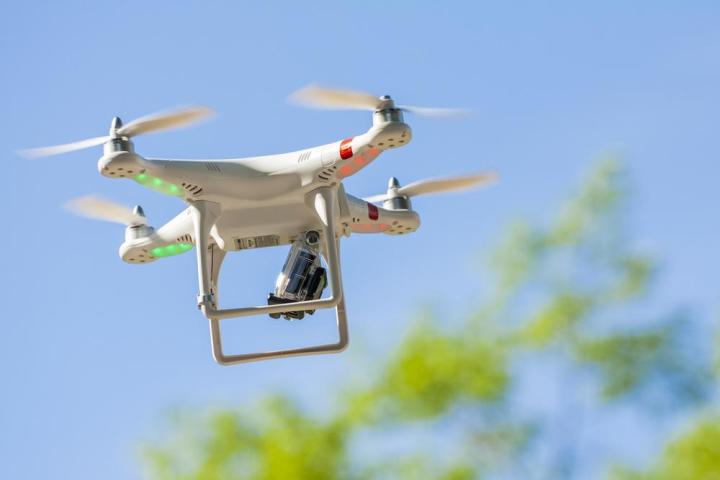
It’s expected that the fast-expanding drone industry will soon be worth billions of dollars and lead to the creation of hundreds of thousands of jobs. With that in mind, regulatory bodies responsible for governing our skies are thinking long and hard about how best to deal with the increasing number of unmanned aerial vehicles taking flight as both businesses and consumers show a growing interest in the technology.
Recommendations laid out by the UK lawmakers include the setup of an online database, with all drone operators required to register.
Interestingly, it suggests the database could be linked to a smartphone app that would provide reassurance to the public by allowing them to identify the owner of any drone they see, with information also offered on the purpose of its flight. The data would also help the authorities to keep tabs on drone traffic.
Greater use of geo-fencing is also recommended, which would stop drones from flying close to sensitive sites such as airports and jails.
‘Huge opportunity’
Baroness O’Cathain, chairperson of the committee that produced the lawmakers’ report, said there was a “huge opportunity to make Europe a world leader in drone technology.”
However, she said that just “one disastrous accident” could destroy public confidence “and set the whole industry back” if the matter wasn’t handled carefully.
The recommendations come in the wake of several high-profile drone-related incidents in Europe and the U.S. Officials in France, for example, are still trying to work out who’s behind mysterious quadcopter flights over nuclear power plants across the country and landmarks in central Paris, while last month a UAV caused a security scare when it crash-landed on the lawn of the White House, though that was put down to an inebriated intelligence agency worker.
The UK already has regulations in place governing drone flights but is keen to overhaul them to keep pace with the fast-changing technology.
The growing popularity of the flying machines has left the Federal Aviation Administration (FAA) and its counterparts around the world playing catch-up as they attempt to build a framework of rules that strikes a sensible balance between freedom and safety.
Regulations should also avoid stifling innovation, for too much could see companies taking their research work elsewhere, as Amazon has threatened to do with its Prime Air quadcopter project. Considering this, the FAA will no doubt be looking closely at developments across the pond as Europe also moves to tackle the fledgling industry.
[Source: BBC]


